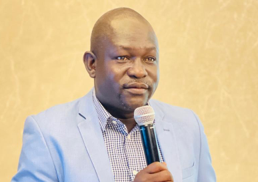The recent drama surrounding Maj. Gen. Kon John Akot, Director General of South Sudan’s Traffic Police, is not simply a routine personnel reshuffle. It has exposed deep institutional weaknesses, a disregard for the chain of command, and a serious threat to public confidence in law enforcement.
On 11 November 2025, Former Inspector General of Police Gen. Abraham Manyuat Peter announced a reshuffle affecting 13 senior police officers, including Akot, who was moved from his long-standing position as Director of Traffic Police in Juba to become Police Commissioner in Northern Bahr el Ghazal State. According to the order, officers were required to hand over their duties within 72 hours. However, instead of complying, Akot publicly denied receiving any formal transfer letter, claiming he first learned of the move through social media reports. He alleged that the traffic police headquarters in Juba had been blocked, that guards were disarmed, and that there was a coordinated attempt to force him out. Speaking to journalists, he framed his resistance not as insubordination but as a principled stand, insisting, “I am ready to implement any transfer order, but I am unhappy with the way it was done without following proper procedure.”
Only days later, Major General Akot was reinstated to his post in Juba. According to media reports, his return was met with celebrations in parts of the city, signaling more than a procedural reversal but a political and public relations victory. The Inspector General reportedly prepared a formal reappointment letter, seemingly acknowledging the influence of public opinion and the support Akot enjoys among certain groups.
This is not the first time Akot’s tenure has stirred controversy. In January 2025, he issued a directive that drastically reduced the validity of driving licenses for South Sudanese nationals from five years to one year, and for foreigners from one year to six months. The decision triggered widespread criticism from civil society, legal experts, and ordinary citizens alike. The public backlash was strong enough that the Inspector General eventually rescinded the order, illustrating that unilateral decisions by senior officials can create confusion and regulatory instability.
Akot’s repeated defiance, evident both in the licensing episode and the protracted transfer saga, signals a problem that transcends individual behavior, pointing instead to systemic weaknesses within the police service. When senior officers disregard official directives, it undermines the chain of command, cultivates a culture of impunity, and erodes public confidence in the institution. His reinstatement reinforces the considerable influence he commands, but it also raises serious concerns: Does public opinion or factional pressure now take precedence over established procedural rules?
For ordinary citizens, particularly motorists like myself, the consequences of this leadership culture are tangible and deeply troubling. We routinely witness acts of harassment and extortion carried out in broad daylight, behaviors that appear either protected by Akot’s authority or deliberately exploited to serve his personal interests. This pattern of conduct points up a fundamental governance gap: why does General Kon consistently hesitate to vacate his post? Whether this hesitation stems from political calculation, personal loyalty, or structural inertia within the service, it allows misconduct to persist unchecked.
Ultimately, Akot’s case is not merely about one individual’s defiance; it is emblematic of a system where accountability is uneven, rules are negotiable, and public trust is at risk. Addressing these structural weaknesses is essential to restoring institutional credibility and ensuring that the police service functions in accordance with law and public expectations.
The implications for governance and reform are serious. Traffic management in South Sudan faces long-standing challenges, including inadequate infrastructure, poorly trained personnel, and limited operational capacity. Leadership that prioritizes personal power over institutional responsibility jeopardizes efforts to build a professional, accountable, and effective Traffic Police. Citizens need an institution that can issue clear and predictable policies, enforce traffic laws fairly, and operate free from the whims of individual leaders.
Rebuilding public trust requires decisive action; transfers and directives must be implemented consistently, without exception. Leadership positions should be based on merit, experience, and integrity rather than political loyalty or personal networks. Policy decisions, particularly those affecting motorists and transport regulations, should follow proper legal processes and institutional oversight, rather than being imposed unilaterally. The public should be engaged through feedback mechanisms, and consultation with civil society is essential to restoring confidence in the Traffic Department. At the same time, investment in training and operational systems is necessary to strengthen the department’s capacity and ensure that it can fulfill its mandate professionally.
The saga of Maj. Gen. Kon John Akot is more than a personnel matter; it is a warning about the fragility of institutional norms in South Sudan’s security services. Defiance at the top and the ability to reverse official decisions under public or political pressure undermine both the rule of law and the credibility of state institutions. For the Traffic Police to serve the citizens effectively, leadership must be accountable, predictable, and guided by the principles of service rather than personal ambition. Without such reforms, road safety, institutional integrity, and public trust will remain in jeopardy.
The author, James Bidal, is passionate about defending Human Rights and is a researcher. He can be reached via email at goodbidal@gmail.com
The views expressed in ‘opinion’ articles published by Radio Tamazuj are solely those of the writer. The veracity of any claims made is the responsibility of the author, not Radio Tamazuj.




